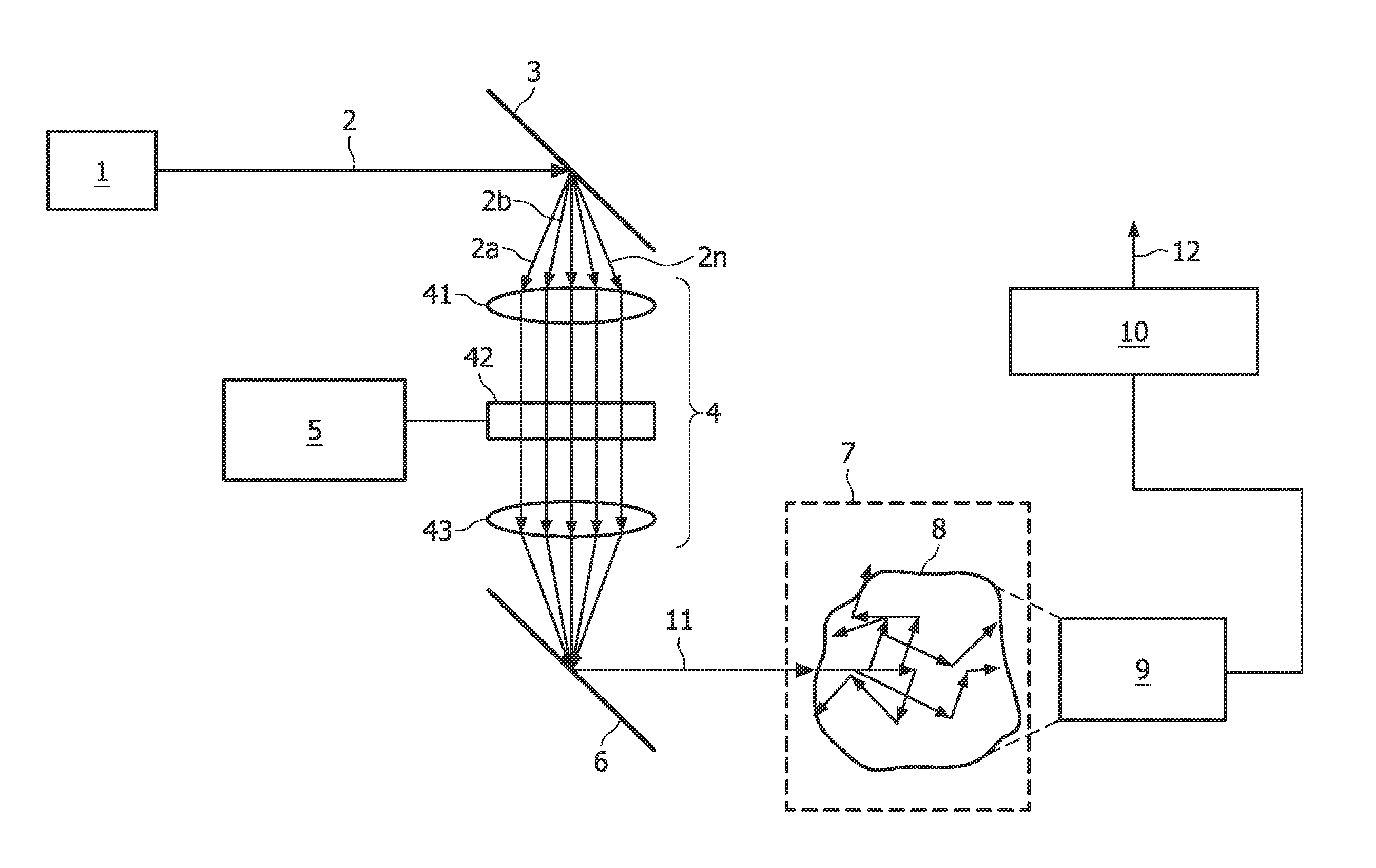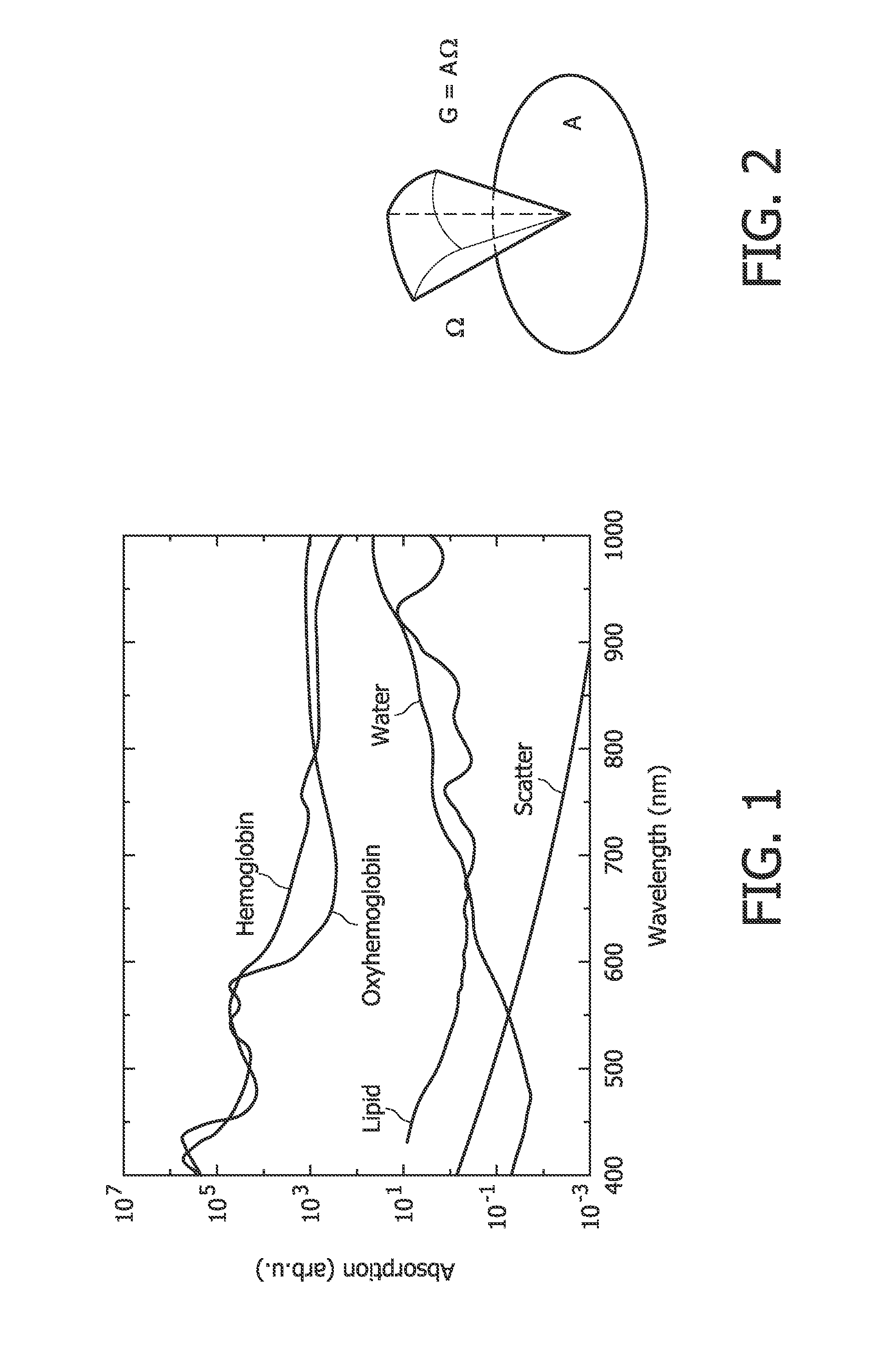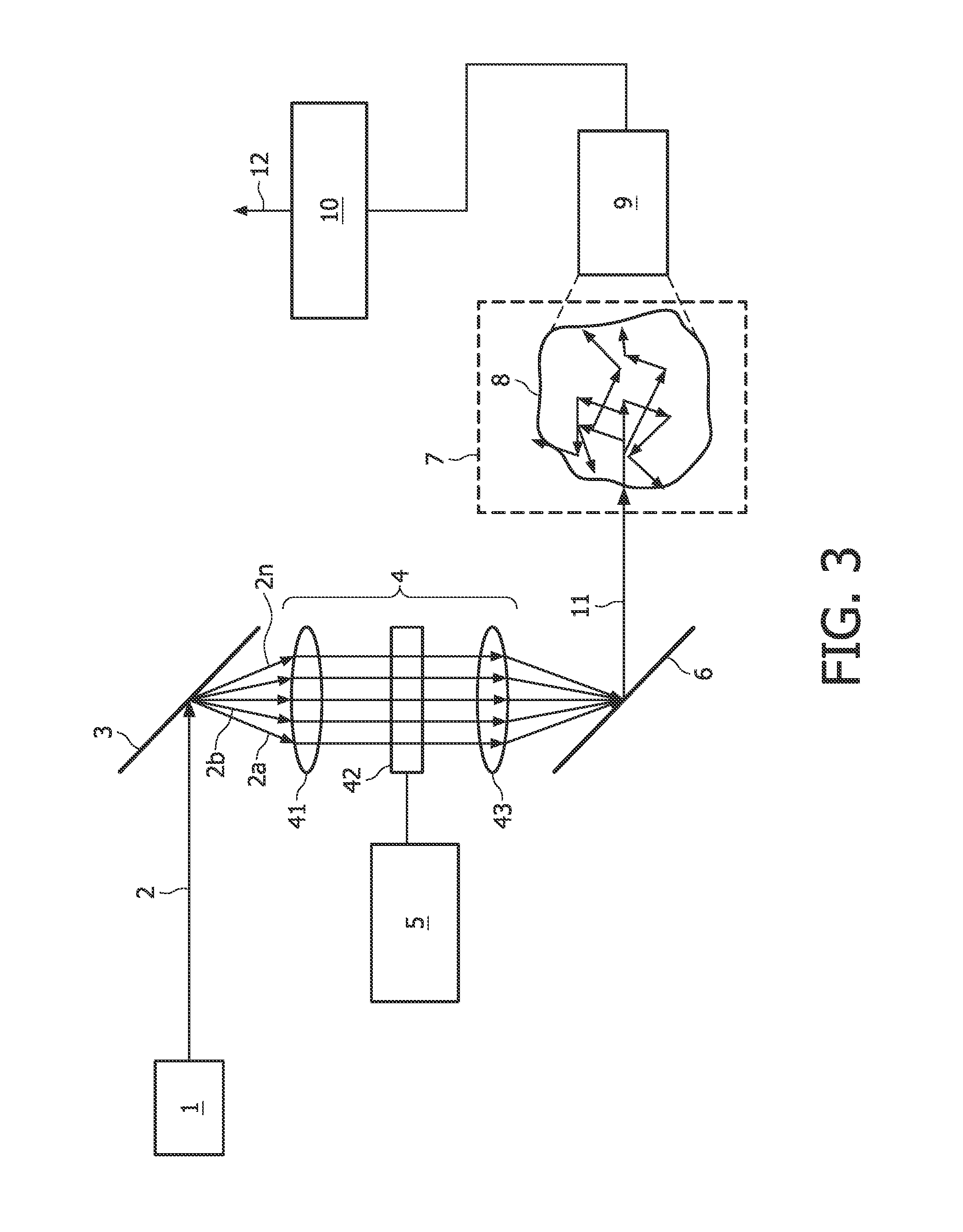Method and device for optically examining the interior of turbid media
- Summary
- Abstract
- Description
- Claims
- Application Information
AI Technical Summary
Benefits of technology
Problems solved by technology
Method used
Image
Examples
first embodiment
[0032]A first embodiment of the present invention will now be described with reference to FIG. 3. A device for examination of the interior of turbid media according to the first embodiment is formed by a spatial light modulation spectroscopy device. The device comprises a light source 1 emitting a collimated beam 2 of broad-band light, a band separator 3, a spatial light modulator 4, a light recombining unit 6, a measurement volume 7 for accommodating a turbid medium 8, a detector 9, and a demodulator 10.
[0033]The light source 1 is chosen such that white light with high power and brightness is emitted, i.e. the beam 2 comprises a continuous broad band of wavelengths covering a large plurality of wavelengths, preferably in the visible, IR, and / or NIR. The light source 1 may be pulsed. For example, the light source 1 is an extremely bright white light source based on super-continuum generation. For example, this is achieved by using intense femto-second light pulses propagating throug...
second embodiment
[0047]A second embodiment will now be described with respect to FIG. 4. The second embodiment substantially corresponds to the first embodiment but comprises additional features which will be described. Therefore, identical components are denoted by identical reference signs and their description will be omitted.
[0048]The second embodiment differs from the first embodiment in that a beam splitter 20 is introduced in the light path behind the light modulating unit 42. This beam splitter couples a portion of each of the plurality of modulated wavelength bands out and directs it, via a lens 21, to a light analyzing unit 22. The light analyzing unit 22 analyzes the light distribution in the plurality of modulated wavelength bands and outputs the results as an output signal 23. The light analyzing unit 22 can e.g. be formed by a spectrometer.
[0049]The light analyzing unit 22 is further coupled to the modulation source 5 of the spatial light modulator 4 to provide a feedback signal 24 to ...
third embodiment
[0052]A third embodiment will now be described with respect to FIG. 5. The third embodiment substantially corresponds to the second embodiment but comprises an additional feedback as will be described below. Again, identical components are denoted by identical reference signs and their description will be omitted.
[0053]As can be seen in FIG. 5, an additional feedback loop from the detection side (behind the turbid medium) to the source side (upstream of the turbid medium) is provided. According to the shown example, the demodulator 10 outputs a feedback signal 26 which is provided to the modulation source 5 and thus to the spatial light modulator 4.
[0054]With this arrangement, further advantageous features can be realized. For example, the source spectrum, i.e. the spectrum of the spectrally encoded broad-band light which is used for illuminating the turbid medium 8, and the intensity of the different channels can be adaptively changed to the optimum probing spectrum based on the fe...
PUM
 Login to View More
Login to View More Abstract
Description
Claims
Application Information
 Login to View More
Login to View More - R&D
- Intellectual Property
- Life Sciences
- Materials
- Tech Scout
- Unparalleled Data Quality
- Higher Quality Content
- 60% Fewer Hallucinations
Browse by: Latest US Patents, China's latest patents, Technical Efficacy Thesaurus, Application Domain, Technology Topic, Popular Technical Reports.
© 2025 PatSnap. All rights reserved.Legal|Privacy policy|Modern Slavery Act Transparency Statement|Sitemap|About US| Contact US: help@patsnap.com



